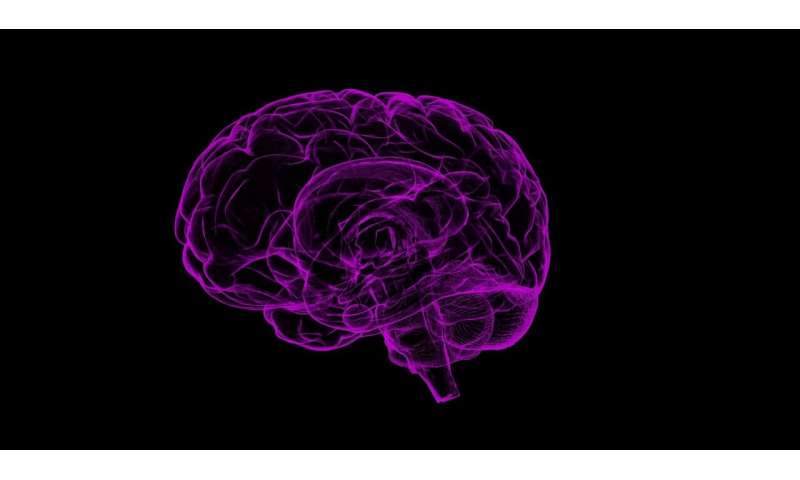
An app to help scientists sort through thousands of images of brain scans to use in large-scale studies of brain disease has been created by a group of staff and students from Cardiff University.
The app, dubbed NeuroSwipe, is a citizen science collaboration between students at the University’s National Software Academy and academics at the Cardiff University Brain Research Imaging Center (CUBRIC).
The app trains non-scientists to become experts at recognizing brain scans that would be suitable for a scientific study, potentially saving researchers valuable time.
Normally, the individuals who are involved in a scientific study will have different images created of their brain which, for a number of different reasons, such as moving excessively during the brain scan, can vary in quality and so do not provide an accurate and useable picture.
With the largest of these studies including hundreds of thousands of people, the result is a huge bank of images that need to be checked by a trained expert to ensure consistent data quality before the scientific analysis can begin.
“The image filtering process has been largely automated in recent years but training an artificial-intelligence program to detect poor quality scans is challenging,” said Dr. Judith Harrison from CUBRIC, who is leading on the project.
“The human eye is exquisitely sensitive to subtle differences in size, shape, color and appearance, so that’s why we wanted to get the public involved.”
Dr. Harrison was fortunate enough to be able to call on the expertise of students at the University’s National Software Academy (NSA), a center of excellence for software engineering where students are required to work on client-facing projects throughout their degree.
The students were able to build the app in just 10 weeks, spending time with Dr. Harrison in the laboratories of CUBRIC to fully understand how brain scanning worked and the requirements needed for such an app.
Jack Light, a student from the NSA who worked on the project said: “I loved the experience of working on the project with CUBRIC, they were the perfect client to work with as they knew what they wanted and had a clear picture, but were also happy to discuss and take in suggestions. It was hugely beneficial, by working on the real project it provided the opportunities to encounter problems that I wouldn’t normally have met in a typical learning environment. Not only this but it meant I had the opportunity to work on a project from its design to its integration and see it be used and deployed in a real-world environment.”
The result is a mobile- and web-based app in which people are trained on how to differentiate between brain scans and then asked to classify images they are presented with, swiping right for a good image and left for a bad image.
“The images come from a diffusion MRI scan, which creates pictures of the brain by detecting the motion of water molecules traveling through axons—important nerve fibers which are essentially the wiring of the brain that carry information about our environment, our vital organs and even our memories,” continued Dr. Harrison.
“The images that are currently appearing on the app are from a study we are undertaking on the genetic risks of Alzheimer’s disease.”
Users of the app are on the lookout for the correct shape of the fornix—a bundle of nerve fibers deep in the brain that are vital for storing new memories and are affected in early Alzheimer’s disease.
“NeuroSwipe is currently in the early stages of development and is purely proof-of-concept at the moment, but we would love the public to get involved and give us feedback so that the process can be fine-tuned and the app can ultimately be scaled up for use in large-scale studies involving thousands of patients,” said Dr. Harrison.
The app is web-based and can be used on any device with access to the internet. The researchers undertook workshops at CUBRIC alongside Diverse Cymru to ensure the project was as inclusive as possible.
Shelagh Maher, Citizen Engagement Officer at Diverse Cymru, said: “We were delighted to be asked to contribute to the NeuroSwipe project. With our experience of working with the National Museum of Wales to seek more diverse pools of volunteers, we helped the Cardiff University Brain Research Imaging Center (CUBRIC) team engage with community groups and consider how to reach people with additional needs and also from diverse backgrounds.”
Professor Wendy Burn, old age psychiatrist and past President of the Royal College of Psychiatrists, said: “The Neuroswipe app is an excellent and very innovative example of public engagement and collaboration. Doctors urgently need a better understanding of what happens in the brain as Alzheimer’s disease develops and this great initiative will help accelerate CUBRIC’s research in this area.”
Cardiff University

